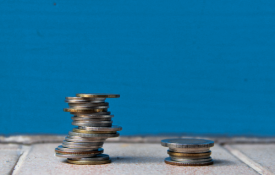-
Children with an older brother have poorer language skills than those with a big sister
The role of birth order in shaping who we are has been a matter of some debate in psychology. Recent research has cast doubt on the idea that an individual's position in relation to their siblings influences their personality, for instance. But there may be other domains where birth order is still important: in particular, researchers have found that children with a greater number of older siblings seem to have worse verbal skills. However, a new study published in Psychological Science has found that the situation is a bit more complicated than that.
-
‘Great Recession’ linked to long-term mental health issues: study
Millions of Americans are still recovering from the “Great Recession” of 2008. But it’s not just their finances that took a hit. Those who suffered financial hardships due to the ruinous economic downturn are also more likely to be depressed, anxious and use drugs now, according to new research published in Clinical Psychological Science. “Individuals who experienced even a single recession impact still had higher odds of nearly all of the adverse mental health outcomes we examined — including clinically significant symptoms of depression, generalized anxiety, panic and problems with drug use,” said lead researcher Miriam Forbes of Macquarie University in Sydney.
-

Misperceptions About Racial Wealth Gap Examined in New Report
Yale University researchers explore the psychological processes that explain why the vast majority of Americans underestimate the magnitude of economic inequality between Whites and racial minorities.
-

New Research From Clinical Psychological Science
A sample of research exploring mechanisms underlying attention-bias modification, effects of recall and memory disjointedness on trauma symptoms, and eating disorder pathology among those with food insecurity.
-
Emotions: Separating Fact from Fiction
Accumulating scientific evidence about emotion defies common sense, suggesting common beliefs about emotions have been in error for over 2,000 years. We’ll dispel three widespread fictions about emotions that lurk in classrooms, boardrooms, and bedrooms around the world. We’ll then explore a radically new scientific understanding of what emotions are and how they work.
-
No Bones about It: People Recognize Objects by Visualizing Their “Skeletons”
Do humans learn the same way as computers? Cognitive psychologists have debated this question for decades, but in the past few years the remarkable accomplishments of deep-learning computer systems have fanned the flames, particularly among researchers who study object recognition. Humans effortlessly know that a tree is a tree and a dog is a dog no matter the size, color or angle at which they’re viewed. In fact, identifying such visual elements is one of the earliest tasks children learn. But researchers have struggled to determine how the brain does this simple evaluation.

